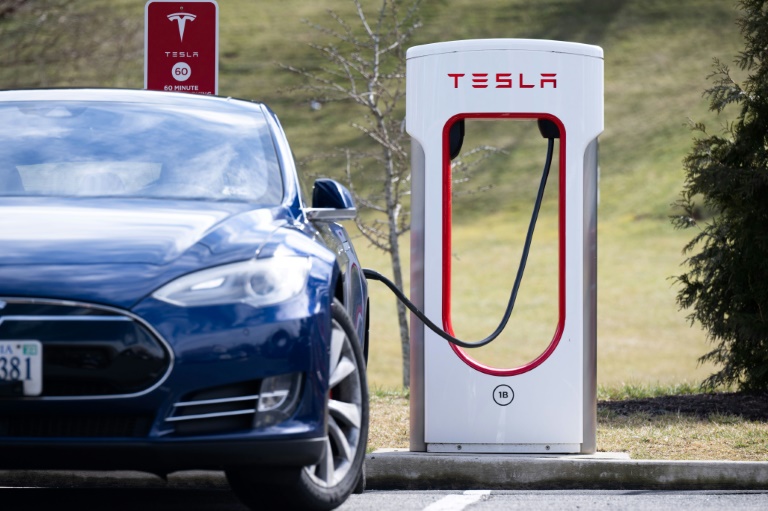EV decarbonization partnership launches in US

Tesla faces increasing competition in the electric vehicle sector, with a growing number of Chinese makers as well as traditional auto firms such as General Motors and Volkswagen – Copyright AFP/File SAUL LOEB
Reliability and interoperability issues often stem from a lack of standardization that can impede communications between the vehicle and charger, or payment processing. A new partnership aims to tackle this conundrum in the U.S.
The U.S. Joint Office of Energy & Transportation, which was created by the Bipartisan Infrastructure Law to provide support and expertise to a multitude of programs that seek to deploy a network of electric vehicle chargers, zero-emission fuelling infrastructure, and zero-emission transit and school buses, has adopted the EVerest open source project from Linux Foundation Energy.
The aim is for this to serve as a reference framework for EV charging infrastructure throughout the U.S.
The intention is for EVerest to be used to develop and maintain an open source software stack for energy communications across charging stations, vehicles, generation resources, batteries, adjacent chargers, power grids, backend payment systems, user interfaces, and mobile devices. Open source software and code is software that is distributed with its source code, making it available for use, modification, and distribution with its original rights.
The intention is to reduce instances of incompatibility that result from proprietary systems and make charging more reliable for EV drivers.
The objective is to accelerate the adoption of EVs and decarbonization of transportation in the U.S. Transport has a major role to play in the economy reaching net zero. The scale of the challenge demands a step change in both the breadth and scale of ambition and governments have a duty to act quickly and decisively to reduce emissions.
With the current partnership, this will be tackled by:
- Accelerating development and deployment.
- Increasing customizability for different use cases.
- Offering long-term maintainability.
- Avoiding vendor-lock in while enabling a commercial support ecosystem.
- Ensuring high levels of security.
From the technology perspective, one area of interest is with this programme being an example of the government collaborating to deploying code into an open source project. With the National Electric Vehicle Infrastructure (NEVI) Standards requiring that EV chargers conform to Open Charge Point Protocol (OCPP) 2.0.1 no later than February 28, 2024, the basis is provided for charger manufacturers consider a standardized reference implementation that is OCPP 2.0.1 compatible.
The NEVI program creates a framework under which states will distribute federal funding to projects, provided they meet the criteria articulated in the standards.
EV decarbonization partnership launches in US
#decarbonization #partnership #launches





